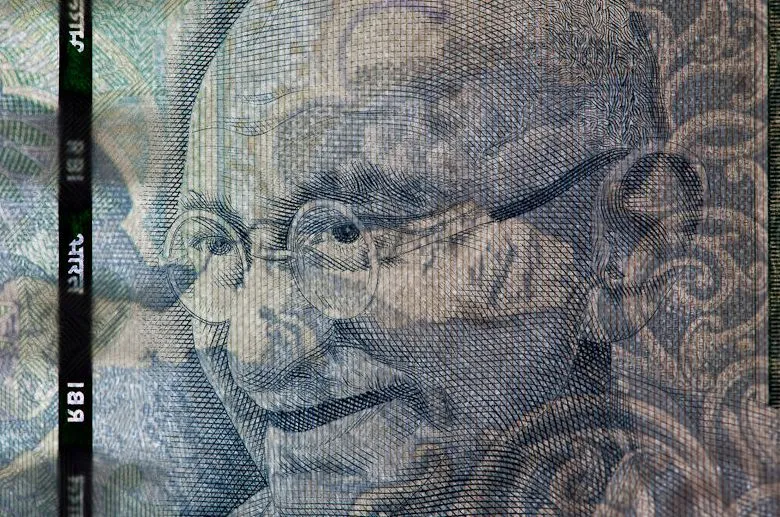
The following is a chapter from the book
70 Policies that Shaped India: 1947 to 2017, Independence to $2.5 Trillion.
Find the book here.
The writ of control as the driving force was not restricted within the country; Indian entrepreneurs couldn’t look outside either. The Foreign Exchange Regulation Act (FERA) of 1947, with roots that went as far back as the Defence of India Act <1> of 1939, extended controls <2> to “the use or disposal of, or dealings in, coin, bullion, securities or foreign exchange.” It was also a temporary law <3> that would expire on 31 December 1957, following the end of World War II. Since the shortage of foreign exchange was likely to continue, the Act “to regulate certain payments, dealings in foreign exchange and securities and the import and export of currency and bullion” was made permanent. Prosecution under the Act, however, was laced with lack of evidence and want of proof. This, in turn, was due to inadequate staff to detect, investigate and prosecute offenses. As a result, convictions were few. A 1972 Law Commission report, Trial and Punishment of Social and Economic Offences, <4> observed lacunae in the Act and recommended changes in the law. Read alongside the June 1971 report, Leakage of Foreign Exchange through Invoice Manipulations, <5> FERA 1947 was repealed and FERA 1973 enacted by Parliament on 19 September 1973. The new law imposed restrictions on foreign equity, and on the growth and expansion of foreign-owned companies: all foreign companies had to dilute their shareholdings to 40 percent and needed permission from the RBI (as the regulating agency) to operate, if their shareholding was higher. Out of the 881 companies that applied to retain their higher share, only 150 were allowed; those who found the terms unacceptable began to wind up: 54 companies applied to exit India by 1977–78 and nine in 1980–81. <6> Amongst the high-profile exits were IBM and Coca Cola, both to protect intellectual property: the codes for IBM and the formula for Coca Cola. On the other hand, consumer goods giant Hindustan Unilever (then, Hindustan Lever) stayed on and diversified <7> into exports, high-technology sectors and chemicals manufacturing, with more than 60 percent of its assets in the core sector. One of the unintended consequences of FERA in its 27-year-long run, when it was repealed and Foreign Exchange Management Act (FEMA) <8> was introduced, was the high returns that Indian investors received by investing in companies that stayed in India, divested their equity, became ‘Indian’ companies and stayed ‘blue chips’ for decades.
<1>The Defence of India Act, 1939, XXXV of 1939, A Collection of The Acts of the Indian Legislature and of the Governor General for the Year 1939, Legislative Department, Government of India, 29 September 1939.
<2>The Defence of India Act, 1939, XXXV of 1939, Chapter II: Emergency Powers, Section 2 (2), Clause xxii, A Collection of The Acts of the Indian Legislature and of the Governor General for the Year 1939, Legislative Department, Government of India, 29 September 1939.
<3>Delhi High Court, “K.N. Mehta Vs. Director of Enforcement and Others: Court Judgment,” Legal Crystal, 20 May 1982, para 22, accessed 8 January 2018.
<4>The Trial and Punishment of Social and Economic Offences, Forty-seventh Report, Law Commission of India, Chapter 15, 28 February 1972, paras 8–36, 104–125, accessed 8 January 2018.
<5>Nandita Pant, “Leaking Foreign Exchange Tap,” Economic and Political Weekly 7, no. 30 (22 July 1972): 1407+1409-1414, accessed 9 January 2018.
<6>Prithwiraj Choudhury and Tarun Khanna, “Charting Dynamic Trajectories: Multinational Enterprises in India,” Business History Review 88, no. 1 (April 2014): 7, accessed 9 January 2018.
<7>Baldev Raj Nayar, “Business and India’s Economic Policy Reforms,” Economic and Political Weekly 33, no. 38, (September 1998): 19–25, 2453–2468, accessed 9 January 2018,
<8>Chapter 50: The Foreign Exchange Management Act.
The views expressed above belong to the author(s). ORF research and analyses now available on Telegram! Click here to access our curated content — blogs, longforms and interviews.



 The following is a chapter from the book 70 Policies that Shaped India: 1947 to 2017, Independence to $2.5 Trillion.
Find the book
The following is a chapter from the book 70 Policies that Shaped India: 1947 to 2017, Independence to $2.5 Trillion.
Find the book  PREV
PREV



